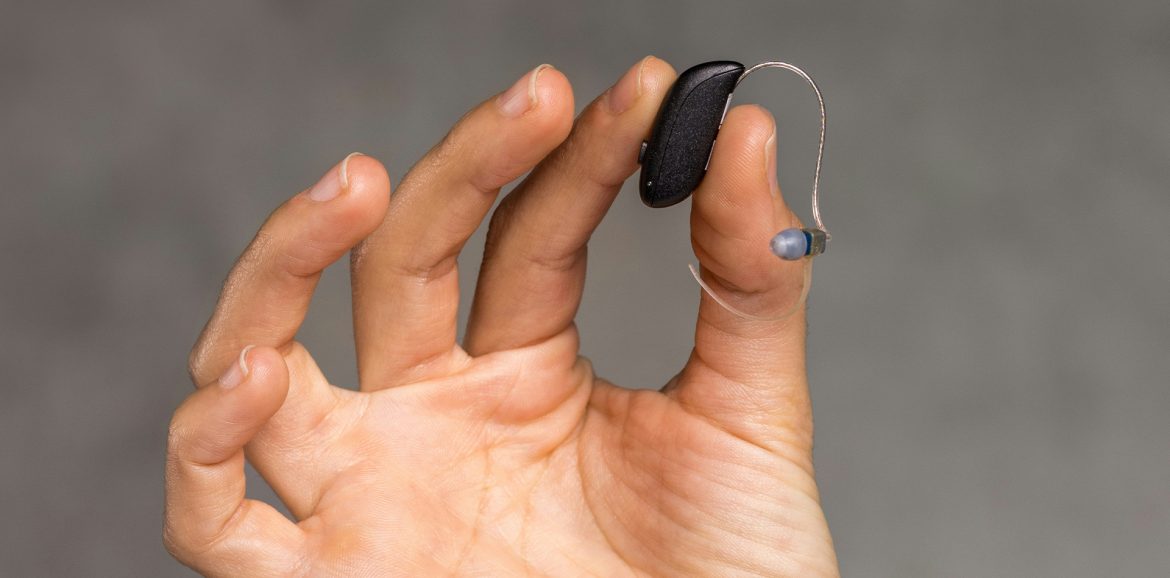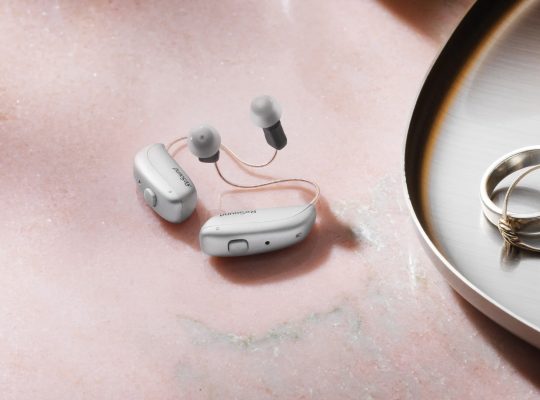A hearing aid can be invaluable for people with hearing loss. For many, however, it is a significant investment, which begs the question: how does health insurance work when buying hearing aids? In this blog, we explain step by step how health insurance in the Netherlands covers hearing aids, what the conditions are and what you need to consider.
1. Basic insurance and hearing aids
In the Netherlands, the reimbursement of hearing aids is partially covered by the basic insurance. For adults aged 18 and over, the basic insurance reimburses 75% of the cost of a hearing aid in most cases. The remaining 25% is a co-payment that you must pay yourself. Children younger than 18 are usually reimbursed the full amount, provided the conditions are met. How an audicien must provide hearing aids in accordance with the Health Insurance Act can be read exactly in the hearing protocol.
Conditions for reimbursement:
- The hearing loss must be at least 35 decibels.
- The device must have been prescribed by an audiologist or specialist.
- The hearing aid must meet the requirements of the health insurance company and fall within a certain category.
2. deductible and hearing aids
In addition to the 25% co-payment, the health insurance deductible also applies. The deductible is the amount you must first pay yourself before the health insurance company will pay out reimbursements from the basic insurance. This means that if you have not yet used up your entire deductible, you must pay these costs first.
3. Supplemental insurance for additional coverage.
Although basic insurance covers much of the cost, some health insurance companies offer supplemental insurance for hearing aids. With supplementary insurance, you can be reimbursed for part or even the entire co-payment. It is important to check whether your health insurance company offers this and whether it is financially advantageous to take out supplementary insurance.
4. Procedure for hearing aid reimbursement.
Purchasing a hearing aid usually involves the following steps:
- Visit a contracted audiologist: Health insurance companies often work with contracted audiologists. If you choose a contracted audicien, you will receive the maximum reimbursement. Horend Goed is happy to help you with this.
- Fitting and trial period: A trial period follows the fitting of the hearing aid. If the hearing aid is satisfactory, it is permanently fitted.
- Health insurance claim: The hearing care professional usually submits the claim directly to the health insurance company. You will then receive an invoice for the co-payment.
5. Free choice of hearing care professional
Some health insurance companies offer the option of purchasing a hearing aid from a non-contracted hearing aid dispenser. In that case, reimbursement may be lower. It is therefore important to check in advance what the consequences are of choosing a non-contracted provider.
6. Age-related differences
As mentioned earlier, different rules apply to adults and children. Children under 18 generally receive full reimbursement from basic insurance. For adults, the 75% rule and co-payment apply.
7. How often can you get a new hearing aid?
As a rule, a hearing aid is reimbursed once every 5 years. However, should there be a significant deterioration in hearing within this period, a new device may be prescribed earlier. Please note that the health insurance company usually requires a new medical indication for this.
8. Tips for choosing a hearing aid
When choosing a hearing aid, it is important to look beyond cost. Here are a few factors to consider:
- Comfort: The hearing aid should be comfortable, especially if you are going to wear it daily.
- Functionality: See if the device fits your lifestyle and hearing needs. Modern hearing aids often offer options such as bluetooth, noise-cancelling or special settings for noisy environments.
- Warranty and service: Check what warranty and service the hearing care professional offers.
9. Urging you to use (or misuse) your health insurance.
The last few months of the year are approaching, and that means you will soon be seeing several advertisements encouraging you to use your health insurance again, especially by the large chains of audiologists. We think this is a, shall we say, questionable practice. Not only does it drive up healthcare costs and thus premiums for everyone, it is also by no means always the best (financial) option. Therefore, we would like to invite you to our store. Our hearing care experts look at your personal situation with you and give you honest and sincere advice tailored to your needs. Even if we do not directly sell you a hearing aid. Make an appointment now!
10. Conclusion
Health insurance in the Netherlands provides good basic coverage for hearing aids, but it is important to understand the rules and conditions. By choosing a contracted hearing aid dispenser and, if necessary, taking out supplementary insurance, you can reduce costs. Remember to consider your deductible and co-payment when purchasing a hearing aid. Not quite there? Our experts will be happy to help!








